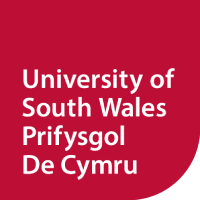Dr CK Tan, Dr A Chong
No more applications being accepted
Funded PhD Project (European/UK Students Only)
About the Project
NEW Deadline: 18th June 2017
The project is co-sponsored by one of the world’s most innovative steel making companies, TataSteel Strip Products, UK, founded in 2007 to produce steel product. This project provides an excellent opportunity for the successful candidate to use their knowledge of engineering instrumentation and data analysis to research and develop a real-time predictive tool for monitoring and improving continuous caster performance. The successful candidate would join the Engineering Research Centre which was rated as having output (jointly with the Sustainable Environment Research Centre) of greater than 75% on internationally excellent or world leading in the General Engineering REF2014.
Programme of research:
The production of liquid iron and thus liquid steel is governed by the effective operation of the three Continuous Casters in the Steel & Slab section of the fully integrated plant at Port Talbot. These are seen as bottlenecks within the whole steel making process. Knowing the ‘health’ of each Caster and having an accurate indication of machine condition can improve decision making around, when/when not to, take a Caster out of production for maintenance. Subtle changes in machine condition can affect product quality and an increase in downgrades or re-work will have an impact on the customer through poor delivery performance. Re-work also impacts cost through additional production time, energy and raw material usage.
On average, the loss of a Caster due to machine issues and having to be brought to a controlled stop can be in excess of £64K per hour to the business. If a breakout occurs (where the skin of the slab ruptures molten metal) the cost will be much, much higher. To have insight when the machine is predicted to fail can save the business tens of thousands of pounds. Machine performance and operational efficiency is running at approximately 50%. By having a better understanding of the real time data to highlight inefficiencies to operational efficiency, improvements of a few percent will dramatically increase the cost effectiveness of the Casting machines.
Based on initial work already conducted in this area, the aim of this project is to develop real time diagnostic tools capable of analysing data from various sources that can affect Product Quality, Machine Reliability and Speed of Work in the Casting process in order to enable better decision making at the shop floor level. The project will also investigate the possibilities of enhancing the diagnostic capabilities through the implementation of new enhanced instrumentation that will provide additional information on caster operation and through the development of software sensors. This latter aspect is novel approach that has been applied successfully in other areas but not to this process.
Studentship:
The studentship will cover the fees for a 3 year full time PhD programme and pay a stipend of circa £14k p.a. There is also a total of £9k project support costs available over the life of the PhD for consumables, travel/conference attendance, minor equipment, training (including the KESS Grad School) and conference attendance.
The position is available from October 2017.
Funding Notes
The project is funded by the Knowledge Economy Skills Scholarship (KESS) programme and will be based in the Faculty of Computing, Engineering and Science at the University of South Wales. KESS is a programme funded by the European Social Fund (ESF) awarded by the Welsh European Funding Office (WEFO) in the Welsh Government.
The studentship will cover the fees for a 3 year full time PhD programme and pay a stipend of circa £14k p.a. There is also around £3.5k project support costs available for consumables, travel/conference attendance, minor equipment, training (including the KESS Grad School) and conference attendance.

 Continue with Facebook
Continue with Facebook

